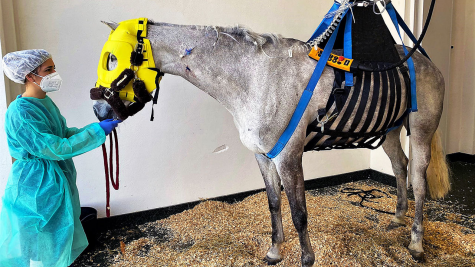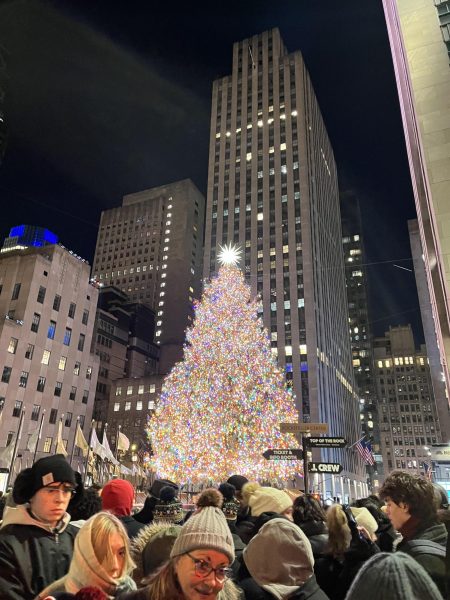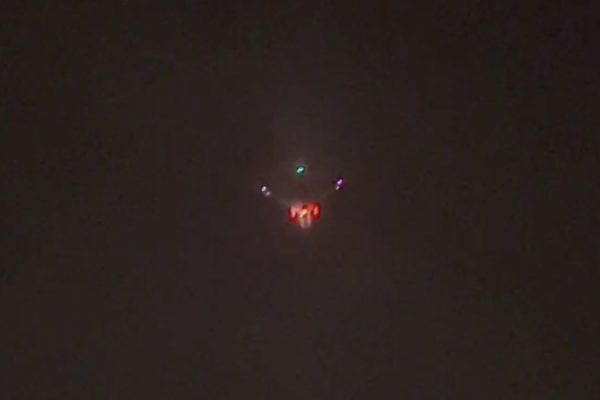Deadly Outbreak of EHV-1 Threatens the Lives of Several Horses
With the global pandemic of COVID-19 coming to a slow end, it was predicted that usual sports would pick back up again and be reopened this summer. However, a new virus has surfaced and is putting a halt to all equestrian sports. The Equine Herpes Virus (EHV-1), is a highly contagious disease among horses that can not only be spread through horse-to-horse contact but from human to horse as well.

The virus is said to have originated from Europe. The International Federation for Equestrian Sports (FEI), which oversees international equestrian competitions, has canceled all European events including its World Cup. Weeks after the cancelation of the European World Cup, symptoms started to arise in horses at Winter Equestrian Festival (WEF) in Ocala, Florida. There are five different strains of the virus, however, strains 1,3, and 4 pose the most serious health risks.
Horses in the United States who have contracted the illness have EHV-1 neurological, respiratory, or abortion. The most troubling effect of EHV-1 is the neurological factor. Neurologic signs result from inflammation of the blood vessels, blood clots, and death of neurologic tissue. Symptoms of EHV-1 include incoordination, hind limb weakness, loss of tail tone, lethargy, head tilt, and the horse’s inability to rise. EHV-1 is being taken very seriously because it is airborne and can also be spread easily through contaminated hands or clothing, equipment and tack, and feed and water buckets.
With seven new cases of EHV-1 in Chester County, PA, local horse shows are now beginning to set safety standards, and even cancel horse shows. A favorite local hot spot for equestrians is the Bucks County Horse Park. The President, Cass Gwalthney, says “We are coming up with some guidelines of safety that guests and horses will have to follow this season. As of now, we have not canceled any horse shows and we have sent out the spring schedule. The AAEP has contacted us with protocols we can take into place including outdoor show grounds only, distancing horses and people, and time limits on arrivals and departures within the horse park.” Other equestrians are concerned that the Devon Horse Show will be canceled for the second consecutive year after the COVID-19 pandemic.
As the course of EHV-1 pans out over the next few months it will be easier to predict what precautions need to be made to stop the spread. Many barns in Pennsylvania have been aware of the virus that has migrated from Florida and are being careful with possible contaminations. “Distancing should be reinforced and other mandatory guidelines should be set depending on the facility. Since the virus is respiratory we can use COVID as a good example, and stray away from indoor facilities. If people notice symptoms in their horses they should not be attending these shows” says Brian Pirollo.
At least 17 animals have since died; others have had abortions or needed surgery to repair organ damage. Horse owners and equestrians should do their part to stop the spread so that spring and summer show circuits can continue to go on. If you notice any symptoms or signs, the Equine Disease Communication Center (EDCC) mandates an EHV test to be administered by a vet. If tested positive it is advised that the horse remains in isolation for 28 days after the last suspected new infection. For more information about EHV-1 and how to prevent your horse from being ill, contact the American Association of Equine Practitioners.
Emma Pirollo is currently a senior at Pennridge. Her interests include snowboarding, dirt biking, and riding her horse, Chase. She has committed to Lehigh...





Jane • May 27, 2024 at 5:35 pm
I recommend this herbal syrup.
Get rid of the Herpes totally,.
Opportunity of a lifetime,
contact:(Robins onbu cler (gmail (com)